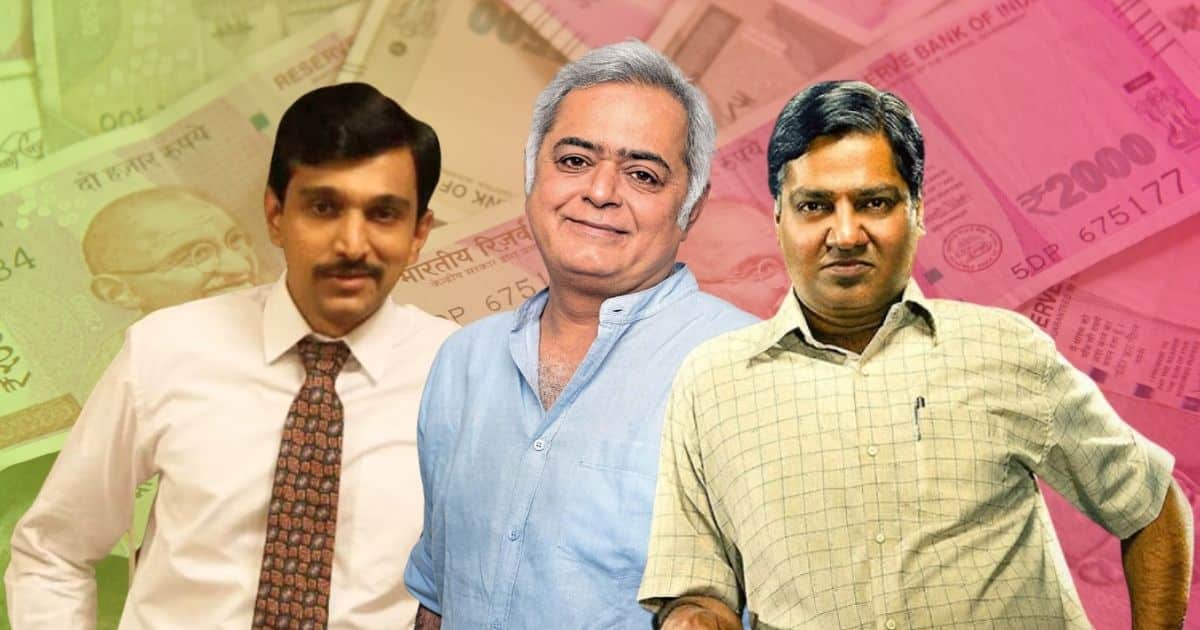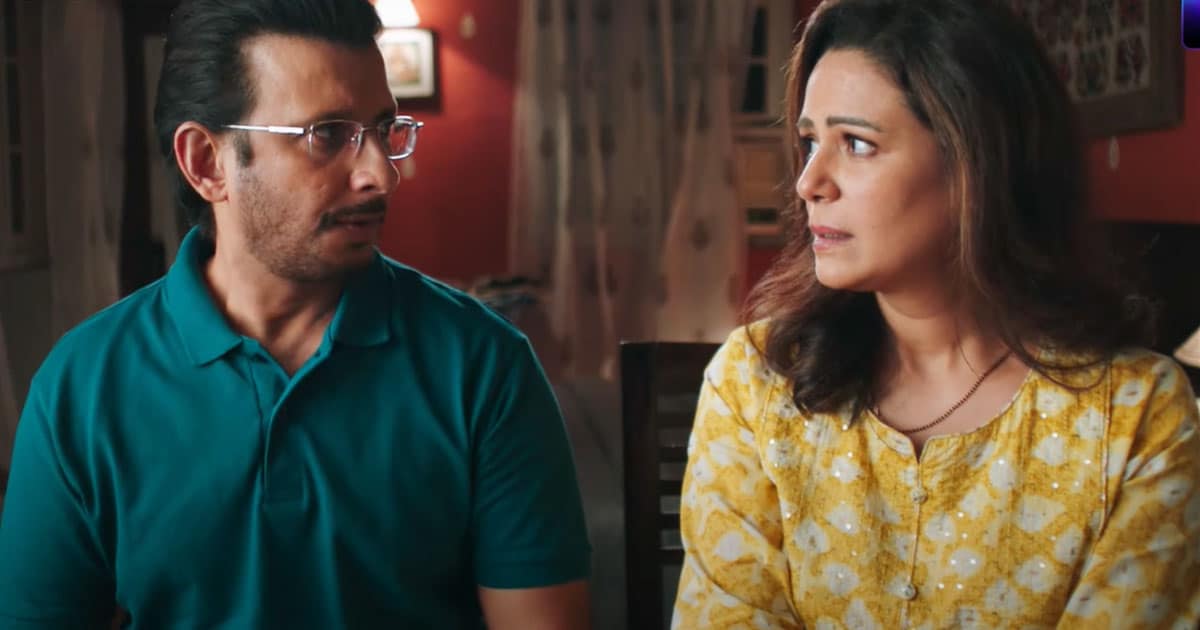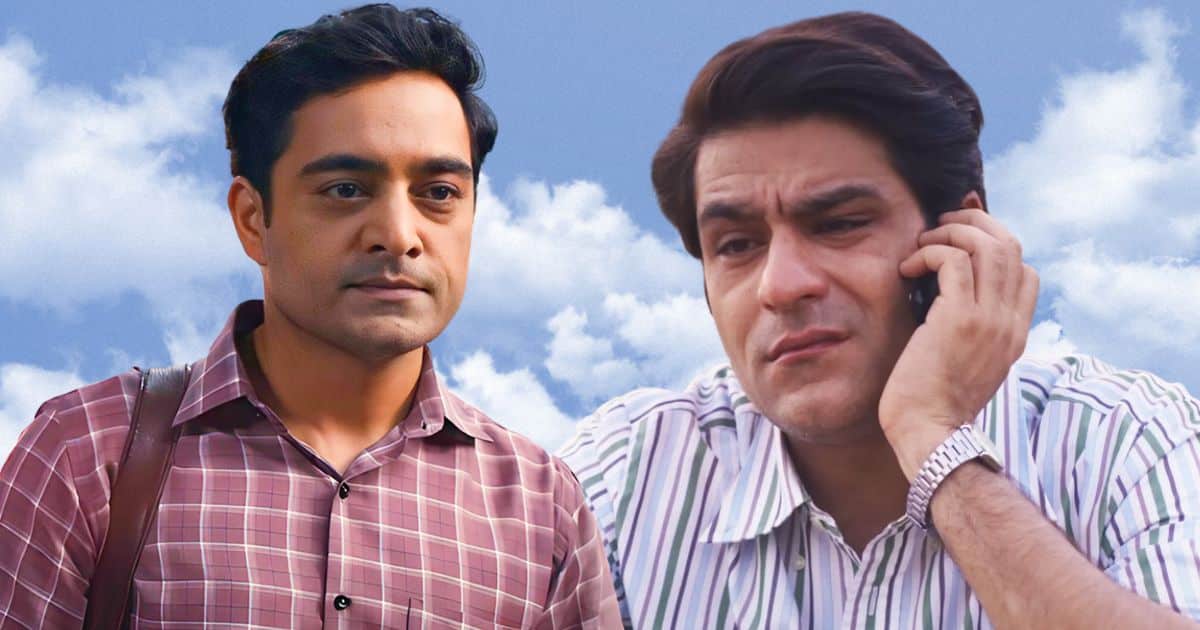As I review the Scam universe, encompassing Hansal Mehta’s Scam 1992 and its successor, Scam 2003, I couldn’t help but be drawn into a world of financial intrigue, moral ambiguity, and dramatic rises and falls of the protagonists, which almost happened in the same era. Hansal Mehta’s scam universe gives us an interesting template that explores the rise and fall of the biggest fraudsters that India witnessed in the 90s and early 2000s.

The Crucible of the 90’s Era
The journey begins by immersing us in the tumultuous era of the 1990s in India. This period bore witness to the rise and fall of governments, the aftershocks of the Babri Masjid riots, and the advent of Dr. Manmohan Singh’s open-door policy, which reshaped the nation’s economic landscape. These historical events provide the backdrop for the financial intrigue that unfolds in both series.
Loopholes in Policies – A Gateway to Fortune
As I venture further into Hansal Mehta’s Scam universe, I uncover how glaring loopholes in policies became gateways for cunning scamsters to amass their fortunes. The ever-shifting political landscape and the aftermath of the Babri Masjid riots created fertile ground for financial irregularities.
Harshad Mehta and Abdul Karim Telgi seized these opportunities, exploiting vulnerabilities to attain both infamy and wealth.
Phenomenal Central Performances
Within this template, Hansal Mehta’s prodigies take center stage. Pratik Gandhi’s portrayal of Harshad Mehta in Scam 1992 is nothing short of remarkable. Gandhi brings Mehta’s character to life with an unmatched blend of physical and emotional acuity, transcending mere acting. His performance leaves an indelible mark.
Similarly, in Scam 2003, Gagan Dev Riar steps into Abdul Karim Telgi’s shoes, the stamp paper counterfeiter. Riar’s performance is a tour de force, complemented by his striking resemblance to the real Telgi. Riar dives into the nuances of Telgi’s portrayal, from the signature act of lifting his pants to the seamless transition between dejection and arrogance. Both Gandhi and Riar’s performances vividly capture the unwavering conviction of their respective characters who operated beyond the law’s bounds.
Protagonist’s Arc – A Jaded Familiarity
Despite differing journeys, both Harshad Mehta and Abdul Karim Telgi are depicted as restlessly ambitious individuals who push boundaries until they exhaust themselves. This shared trait adds a layer of jaded familiarity to the storytelling, emphasizing the Scam universe’s captivating essence. Both possess sharp minds that enable them to foresee the effects of their actions and exploit the system’s loopholes. Their audacious and daring approach to becoming scamsters sets them apart, creating complex yet compelling characters.
Both Mehta and Telgi spared no expense in showcasing their wealth at the zenith of their careers. Mehta made a conspicuous purchase of a luxurious Lexus, one of the most prestigious cars of that era, which he proudly exhibited to all the places he traveled to. Meanwhile, Telgi didn’t lag behind in extravagant displays of affluence, notably showering a whopping 90 lakhs on his girlfriend during a night out at a dance bar. These ostentatious gestures were a testament to the heady days when money seemed to wield an intoxicating power in the scam universe.
The scam cause and effect
While viewers were captivated by the unfolding drama of one scam after another, the central thread I believe that weaves through the series is the poignant portrayal of how these scams deeply affected the lives of their families. Harshad Mehta’s regret and poignant view of money as a poison added complexity to his journey. As we eagerly anticipate the release of season 2 of Scam 2003 in November on Sony LIV, it remains to be seen how Telgi will encapsulate the significance of money and its far-reaching effects on his life and family, further enriching the narrative of this captivating universe.
The dialogue baazi and similar character arcs
In my opinion, one intriguing similarity that unites the Scam universe is its penchant for unforgettable dialoguebaazi. While Scam 1992 gifted us the memorable line Ishq hai toh risk hai, Scam 2003 offers a new gem with Mujhe paisa kamana nahi banana hai or Daring toh karni padegi na darling. These dialogues serve as thematic anchors, encapsulating the essence of the scams and the characters’ relentless pursuit of their goals. They resonate with viewers and become emblematic of the Scam series’ narrative brilliance.
Credit is due to the exceptional writing talents of Kiran Yadnyopavit and Karan Vyas, with the latter being a key contributor to Scam 1992. Their ability to craft multifaceted narratives that draw audiences into the minds of these scamsters is commendable. This shared thread of brilliant writing bridges the gap between the Scam series, solidifying its reputation as a hallmark of Indian television.
Scam 1992 and Scam 2003, guided by Hansal Mehta’s visionary direction, offer enthralling glimpses into individuals who dared to exploit the system. The Scam universe has etched itself as an epitome of excellence in Indian television. As we await the next chapter, one thing is certain – the Scam universe’s legacy will continue to endure.
Scam 2003 is now streaming on the Sony LIV app along with its predecessor, Scam 1992.



